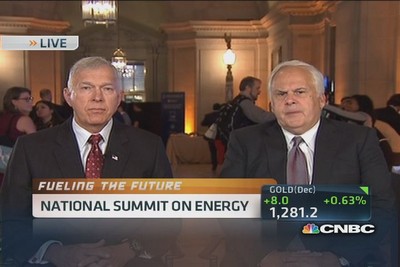
Long story short: While oil prices have held near the $60-a-barrel level thanks to a slight inventory drawdown associated with the start of the U.S. summer driving season, a combination of deepening oversupply, still high inventories, extended bullish positioning and the regular demand slowdown at the end of the summer suggests prices should start sliding again soon. Storage tank capacity could be tested as soon as September.
According to research by Credit Suisse, futures market positioning suggests downside price risk of about 30 percent — which would be enough to take West Texas Intermediate back toward $40 a barrel in a test of the March lows.

The chart above puts OPEC's decision in the context of an epic supply glut. Remember also that while the U.S. drilling rig count is down about 60 percent from its peak, total production increased in the week of May 22 to a new all-time high of 9.6 million barrels per day.
Via: The Fiscal TimesContinue Reading....



